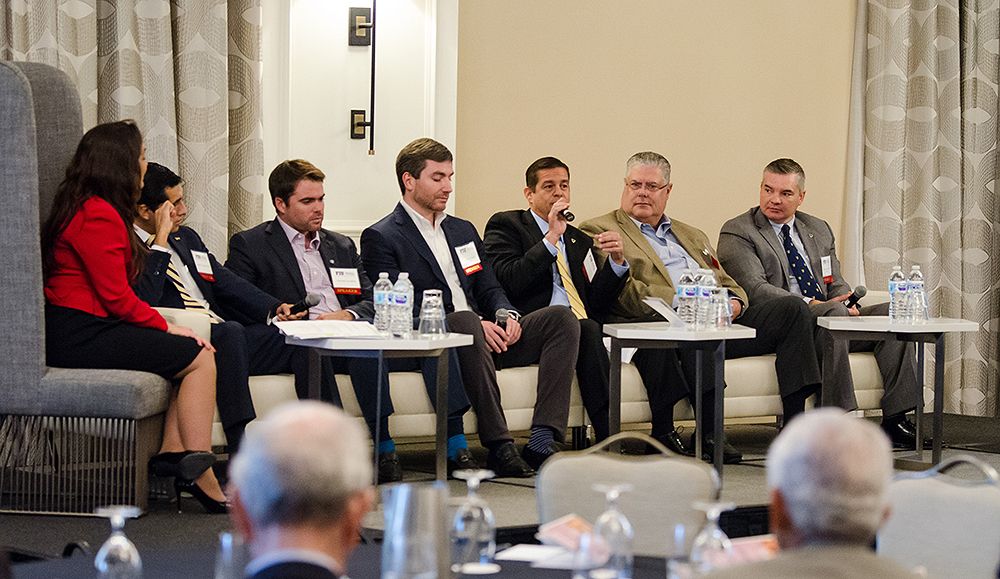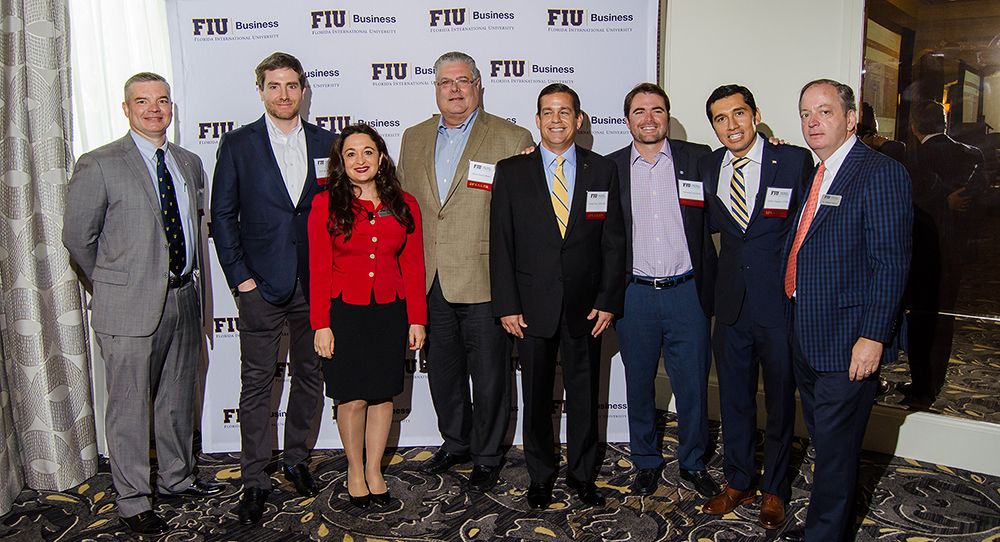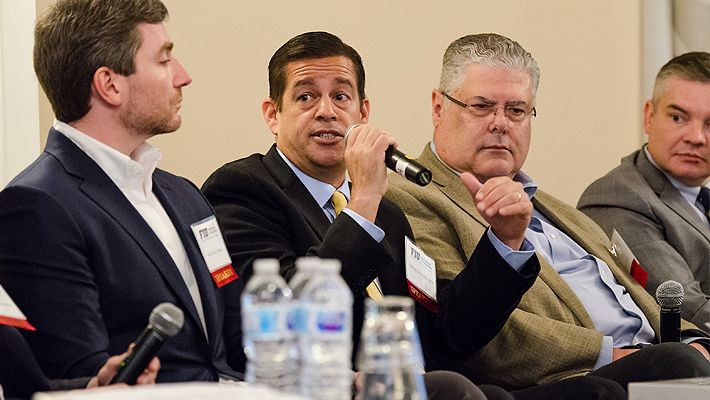South Florida’s strategic location as the gateway to Latin America, the Port of Miami’s increasing influence in international trade and a fast growing e-commerce marketplace are driving growth for the industrial real estate sector.
Industry experts that participated in the bi-annual Real Estate Speaker Series presented May 15, 2018 by FIU’s Hollo School of Real Estate describe this as industrial real estate’s “most dynamic cycle.” Plus, investment from major industrial developers is reaching fever pitch across the region.
There are currently 2.6 million square feet of industrial space – warehouses, distribution space, manufacturing centers, and office service space – under construction in Miami-Dade to be delivered in 2018. Broward has 1 million square feet and Palm Beach County about 300,000 square feet.

“Everybody wants a piece of Miami,” said Edward Redlich (BBA ’01), who leads the ComReal Miami Industrial Team.
One of the biggest drivers of the industrial real estate boom is e-commerce. Last year Amazon signed a lease for its biggest warehouse in Miami-Dade, at 800,000 square feet. The company also operates a fulfillment center near Doral and another near Miami International Airport.
“E-Commerce has been a game-changer for industrial real estate,” said George Pino, an FIU alumni and president of State Street Realty. “Consumers want their purchases now and that merchandise has to be in a warehouse and ready to ship.”
Industrial real estate is a “hot asset class rapidly adapting to meet consumer demand for same day, even same hour delivery,” said Suzanne Hollander, a real estate attorney and broker who moderated the panel and teaches at FIU’s Hollo School of Real Estate. “Buying on the internet directly impacts the need for modern warehouse space equipped with the newest technology and transportation options.”
Another growth driver for the industrial real estate market is manufacturing, ventures that today represent 17 to 20 percent of businesses in the region.
Amerikooler, a Miami-based manufacturer of commercial refrigeration equipment, walk-in coolers, walk-in freezers and refrigerated warehouses, began at a 30,000 square-foot warehouse. Today it operates out of a 200,000-square foot facility, housing a fully-integrated network of robotic machinery and custom software.

“In manufacturing you’re one with the space because it’s not easy to move. It has to be very precise, laid out a certain way,” said CEO, and FIU Business alumnus, Gian Carlo Alonso (BS ’04). “You don’t need a pretty building, just a nice big box with parking.”
Opportunities for students and graduates.
Participants in the Real Estate Speaker Series pointed out that vacancies of industrial spaces are at the lowest Miami has seen in decades, with demand healthy and strong. This, they agreed, opens many possibilities for business and real estate students as well as graduates.
“If I had to advise students, interning as a broker is a great starting point,” said Oliver Ford Gibson, managing director of development and investments at Foundry Commercial. “Financial analysis is a great track because your ultimate objective is to become a deal principal.”
Panelists including Fairchild Partners’ Sebastian Juncadella and Edison Vasquez (MSIRE ’08) from ComReal, introduced students to important commercial real estate organizations including the Society of Office and Industrial Realtors (SIOR) and Certified Commercial Investment Member (CCIM), FIU’s MSIRE students earn credits towards the CCIM Designation.
Commercial real estate offers many options for specialization, noted Pino, who began his career as a property manager and five years later moved into brokerage. “Get yourself with a company that gives you options,” said Pino. “You can train with brokers, developers, construction companies. That’s how you’ll figure out what you like.”





